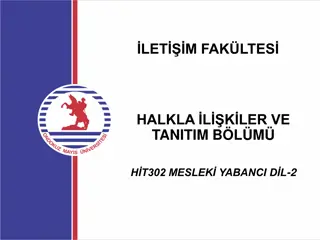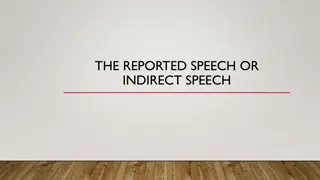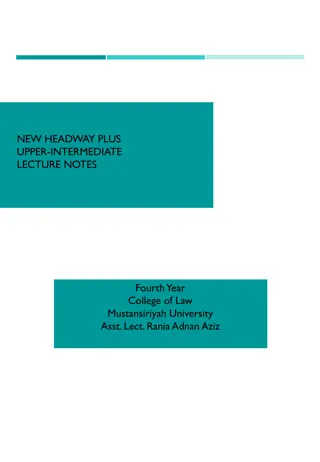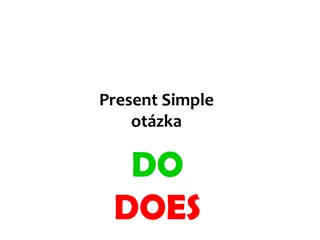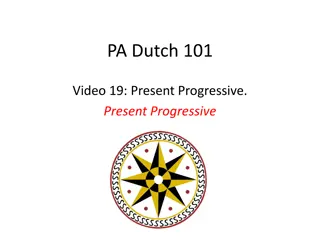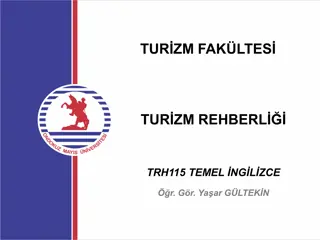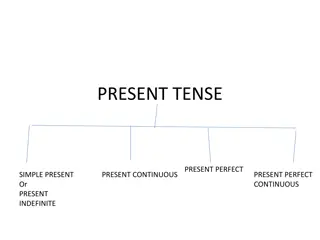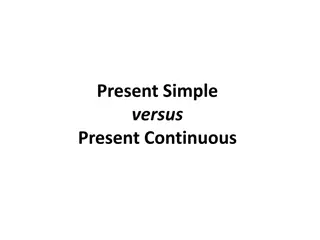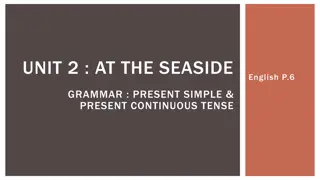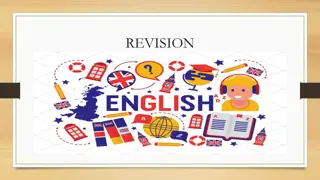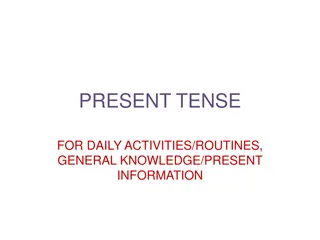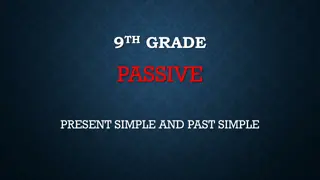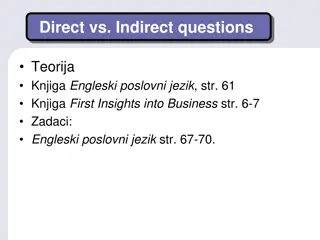
Learn Present Simple Tense Structure and Usage
Master the Present Simple Tense with this comprehensive guide prepared by Mr. Hakan Bilgin. Understand the structure, positive and negative forms, questions, habits, routines, general truths, timetables, mental and emotional actions, time expressions, adverbs of frequency, and more! Improve your English skills today.
Download Presentation

Please find below an Image/Link to download the presentation.
The content on the website is provided AS IS for your information and personal use only. It may not be sold, licensed, or shared on other websites without obtaining consent from the author. If you encounter any issues during the download, it is possible that the publisher has removed the file from their server.
You are allowed to download the files provided on this website for personal or commercial use, subject to the condition that they are used lawfully. All files are the property of their respective owners.
The content on the website is provided AS IS for your information and personal use only. It may not be sold, licensed, or shared on other websites without obtaining consent from the author.
E N D
Presentation Transcript
PRESENT SIMPLE TENSE PREPARED BY MR. HAKAN BILGIN
STRUCTURE Subject Subject Positive Positive I live in Erbil. You live in Erbil. He lives in Erbil. We live in Erbil. You live in Erbil. They live in Erbil. Negative Negative I do not live in Erbil. You do not live in Erbil. He does not live in Erbil We do not live in Erbil. You do not live in Erbil. They do not live in Erbil. Question Question Do I live in Erbil? Do you live in Erbil? Does he live in Erbil? Do we live in Erbil? Do you live in Erbil? Do they live in Erbil? I You He/she/It/sin. subject We You They We use auxiliary verb do in order to make questions and negative sentences With 3rd person singular subjects, verb or auxiliary verb takes s , -es , -ies -x -ch -sh -y
HABITS, ROUTINES, REGULAR ACTIONS I drink tea at the breakfast. She follows a healthy diet. My cousin travels abroad every month. I and my cousin go to cinema every weekend. They go on a picnic monthly. He revises his course notes every night. My best friend enjoys watching Friday shows.
GENERAL AND SCIENTIFIC TRUTH My father lives in Istanbul. My father and my mother love each other. My brother speaks Italian. I teach at TIU. The sun rises from the east. The sun sets at 5 o clock. Water boils at 100 C.
TIMETABLES The plane lands at 15:15 at local time. The match starts at 19:00. Shopping malls close at 22:00.
MENTAL AND EMOTIONAL ACTION (STATE VERBS) I often forget to bring my class materials. I guess I hate greasy food. I love to watch rugby games. I smell the danger with his crazy driving. I feel astonished when I watch the sunset.
TIME EXPRESSIONS Every Once in a day/week etc. All the time Adverbs of frequency:
ADVERBS OF FREQUENCY Always Usually Generally Frequently Often Sometimes Occasionally Seldom Hardly/Barely ever Never Negative meaning and function
HOW OFTEN Our students always arrive at 10 a.m. They are always punctual. They usually study at the library. Mr. Taha often rides horses. He lives near a stable. My parrot sometimes doesn t leave the cage. It is sometimes weird. The temperature seldom falls below 10 C in Erbil during winter days. I hardly ever prefer any sugar in my beverages. The water of Atlantic Ocean never mixes with the Mediterranean.
VOCABULARY Set Guess Arrive Rise Know Land Boil Remember Enjoy Mix Forget Wear Open Believe Rain Cost See Snow Speak Seem Like Teach Smell Love Study Taste Hate Work Feel Think




